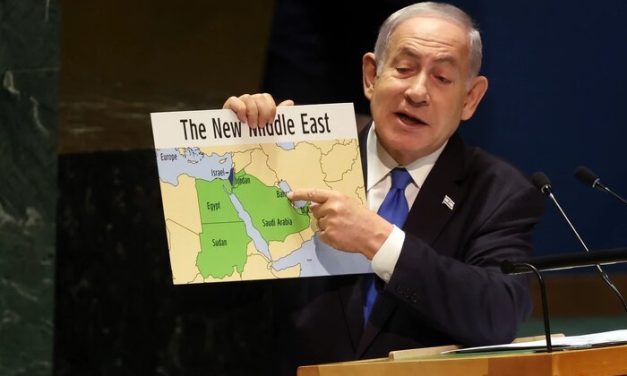In an interview with the Strategic Council on Foreign Relations website, Amir Ali Abolfath clarified, while referring to Biden’s agreement to send far-range missiles to Ukraine, that The US is primarily trying to prevent Ukraine from losing the war. Ukraine alone cannot resist and stand against Russia, and Zelensky clearly stated that if there is no American aid, they will fail.
He called a continuation of the war until the weakening of Russia’s national power in such a way that the risk of another war against its neighbors is eliminated as another US goal. He continued: The US is conducting a kind of managed war against Russia until it does not lead to an all-out international nuclear war. In a gradual and calculated manner, Washington provides more weapons to Ukraine so that while preventing Ukraine’s defeat and balancing, it will not directly be present in the war.
The analyst of US affairs stated that the weapons provided by the United States to Ukraine are more effective than in the past. Still, they are not at a level that can strike deep into Russian soil; he added: This tactical missile system of the US Army, called ATACMS, which has a range of 70 to more than 300 kilometers, can reach Russian territory and can launch attacks on Russian territory from the areas under the control of the Ukrainian army and from behind the eastern and southern fronts, but it seems that the US has taken promise from the Ukrainians not to attack targets inside Russia with those weapons.
Abolfath added: It is unclear whether those missiles will be used to attack Russia in the future. American drones are now being used, but if there are no widespread attacks on Russian soil, those new systems cannot have a decisive effect with a range of 300 kilometers.
He stated that the US hopes that by continuing this process, it will finally force Russia to make concessions to Ukraine at the negotiating table, adding Ukraine has received cluster bombs and weapons with depleted uranium from the US and hopes to be able to acquire missiles and get more tanks and F.16. Step by step, we are witnessing more and more decisive weapons being presented, but the West is trying to advance the situation in such a way that they do not enter into a nuclear war.
The expert on the US affairs pointed to the warnings of some European officials regarding the consequences of Russia’s defeat and humiliation of that country and said: Mark Milley, the Chairman of the Joint Chiefs of Staff, who is the highest-ranking American general, said that the purpose of US support for Ukraine is that Russia will be so weakened that that country will see no attack. The US wants to put Russia in the stage of political isolation and economic and military weakness.
Abolfath, stating that the US has so far not been successful in realizing this goal because Russia is a great military power and a superpower of natural and agricultural resources, continued: Russia has a good rank in the world economy and is the first in gas and grains in the world, the second in oil in the world, and it has chemical fertilizers and all kinds of mineral and natural resources that removes the possibility of the effectiveness of sanctions. In the meantime, Europe suffers due to the start of the war and its prolongation. Although the US is not interested in weakening its allies, this issue is not a priority for the US in the current situation.
He referred to the statements and concerns of the European authorities that Ukraine should finally get a security guarantee from the West, still, it should remain neutral and as a bridge between the world of Russia and Europe, and that the United States, while weakening Europe by selling weapons and supplying natural gas at higher prices, benefits from the war. He emphasized: that Washington believes that if Russia won this war, liberal democracy, as the Western order after World War II, would fundamentally change and this threat, with the alliance of Russia and China, exists more seriously.
Abolfath continued: The US priority is to contain Russia and pull out the teeth of this bear, even at the cost of destroying the Ukrainian nation or weakening Europe. In fact, the main war is for survival, and the Americans are willing to pay heavy costs for it; they have indeed spent a hundred billion dollars for it, but the main cost is from Europe, and the people of Europe, Ukrainians, and non-Ukrainians are dying.
The analyst of US affairs, remembering that the US is less damaged due to the distance from the battlefield and its relative self-sufficiency in many important areas, noted that the continuation of the war depends on the strength of both sides. The US will not suffer from its continuation, and Russia has also shown that it has not been harmed by the sanctions as much as the West expected. The Ukrainian counterattacks and weapons they provided to Ukraine did not have the desired result. However, they managed to maintain the positions of the Ukrainians and prevent the significant advance of the Russians but did not push the Russian army back. In this situation, there are doubts about reclaiming the territories from Russia.
In conclusion, he stated that Ukrainian counterattacks started in the spring, and while we entered the autumn, they did not have a favorable result. Maybe there will be a counterattack in the spring of 2024, and the Ukrainian army will be equipped enough to go forward by then. Still, the Russians will definitely strengthen their positions defensively. For this reason, there is currently no prospect for the end of the war. One of Zelensky’s former advisers said that this war will last about ten years until the end of 2034. But anyway, this is not a war that will end anytime soon.










0 Comments